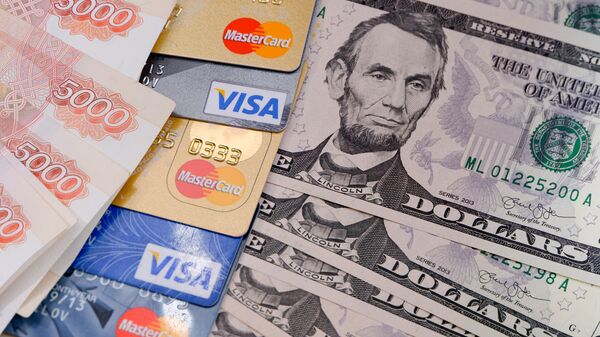At a White House news conference Tuesday evening, Kudlow told reporters the enormous aid bill being prepared by Congress to provide financial relief to businesses, banks and families hurt by government-directed shutdowns in response to the spread of the COVID-19 novel coronavirus would be worth roughly $6 trillion.
The Federal Reserve financial analyst-turned Wall Street investor said the bill includes not only $2 trillion in direct cash payments to families, but also $4 trillion in Federal Reserve lending power intended to buttress the country’s financial system.
This enormous payout, roughly equivalent to the total value captured by the US economy in four months’ time, would lead to an economic rebound in the second half of 2020, once restrictions on movement and association are lifted, Kudlow said.
“This legislation is urgently needed to bolster the economy, provide cash injections and liquidity, and stabilize financial markets to get us through a difficult period, a difficult and challenging period in the economy facing us right now,” Kudlow told reporters, who were reduced in number and spaced out across the White House briefing room to maintain “social distancing” guidelines and stem the spread of the coronavirus.
“We started the year very strong, and then we got hit by the coronavirus in ways that probably nobody imagined possible. We’re dealing with that as best we can,” he said. “This package will be the single largest Main Street assistance program in the history of the United States.”
Kudlow clarified that for small businesses, the bill would not only “maintain their payrolls” during the crisis, but also provide “plussed-up unemployment insurance.”
Previous efforts by Congress have aimed to provide working Americans with paid sick leave and access to coronavirus testing facilities.
The news followed the largest single-day Wall Street boom since 1933, with the Dow Jones rallying more than 2,100 points - an 11% gain - on news of the stimulus package negotiations nearing completion. However, the market has still lost a considerable portion of its value in the last month.
David Coombs, head of multi-asset investments at Rathbones Investment Management, cautioned to the Wall Street Journal Tuesday that this kind of behavior isn’t unusual for an economy on the decline.
“This is classic bear-market moves,” he said. “It doesn’t feel like there’s massive relief and confidence out there.”
The bill was anticipated to pass the Senate as early as last Friday, but stalled amid tenacious resistance from Democratic lawmakers, who argued the bill’s provisions did not meet the needs of working families.
Republican and Democratic leaders in Congress told CNN that a deal could be reached on the bill’s passage by Wednesday.


